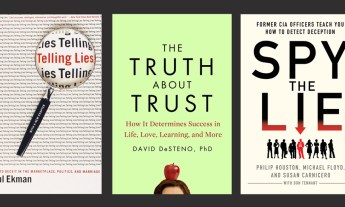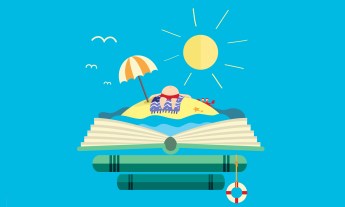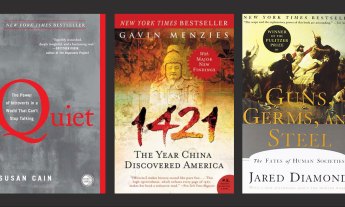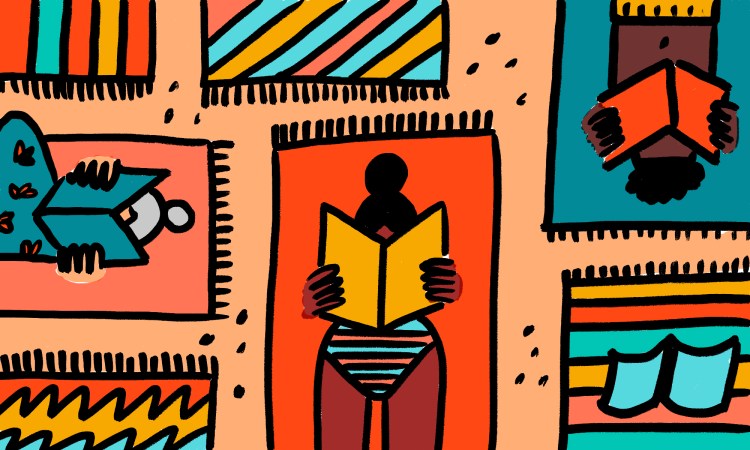
Whether your weeks ahead contain travel, vacations or just longer and lazier days than usual, our list of recommendations from TED speakers has books for all moods, activities and tastes.
When you want to understand why we humans do what we do
Predictably Irrational: The Hidden Forces That Shape Our Decisions by Dan Ariely (TED Talk: Our buggy moral code)
Ariely, a professor of psychology and behavioral economics, reveals through many studies why we so often behave in a way that totally contradicts logic. While reading it, I had to smile many times because I could see myself behaving exactly like the studies’ subjects. After reading Irrational, you may be a bit more gentler with your own and others’ irrationality. You will also know why getting something for free does feel so good.
— Hannah Bürckstümmer (TED Talk: A printable, flexible, organic solar cell)
How Emotions Are Made: The Secret Life of the Brain by Lisa Feldman Barrett (TED Talk: You aren’t at the mercy of your emotions — your brain creates them)
I had the pleasure of meeting the author at a TED event where we both spoke. Her book clarifies and, ultimately, debunks many myths about our emotions and how our brains creates them. It’s an interesting and thought-provoking read, and I found it to be engaging and fascinating. I strongly recommend it to anyone who thinks they can “read” people just by looking at them. (You can read an excerpt from her book here.)
— Simone Bianco (TED Talk with Tom Zimmerman: The wonderful world of life in a drop of water)
Astonish Yourself: 101 Experiments in the Philosophy of Everyday Life by Roger-Pol Droit
Droit is a great French philosopher, and I was so glad when the English-language version of this book came out. I always keep a few copies of it at home to offer as gifts to good friends. It contains very simple experiments to discover the subconscious and unexpected processes in your brain, and it’s great inspiration for those of us who build technologies and create new kinds of experiences.
— Rebecca Kleinberger (TED Talk: Why you don’t like the sound of your own voice)
Nudge: Improving Decisions About Health, Wealth and Happiness by Richard Thaler
This book really added another perspective for me. It explained why we all make — quite often — unwise choices due to a lack of information. Not to spoil the punchline, but I found it very interesting that the cause of making bad decisions can be found within ourselves.
— Matthias Müllenbeck (TED Talk: What if we paid doctors to keep people healthy?)
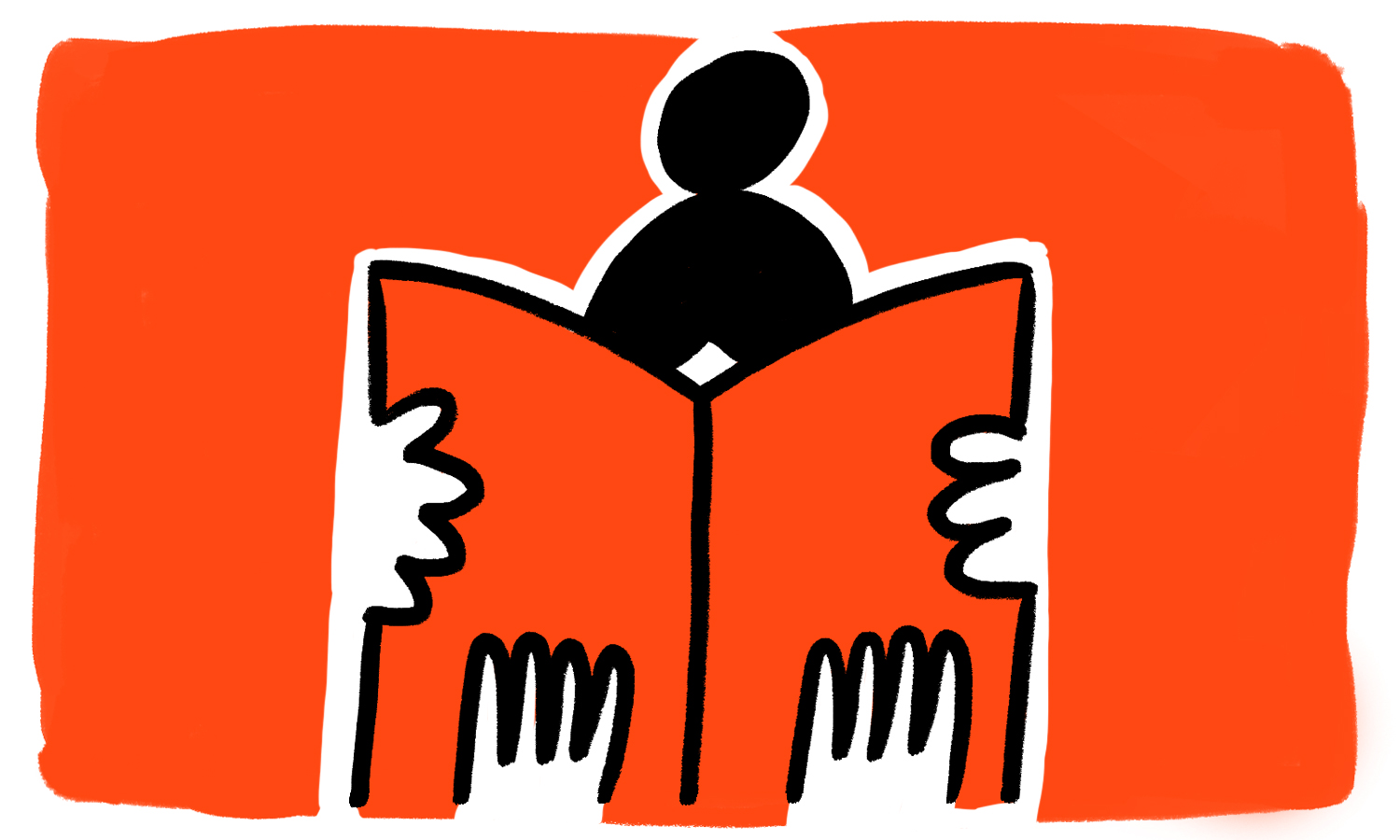
When you want to sink your teeth into some fiction
Another Country by James Baldwin
At WITNESS.org, we collaborate closely with communities who are using video to tell the story of systemic racism. Baldwin’s novel is set in the fifties, but it compellingly describes what the videos we see today are showing us.
— Yvette Alberdingk Thijm (TED Talk: The power of citizen video to create undeniable truths)
A Lucky Man by Jamel Brinkley
Rarely is a debut collection lauded as an instant classic and justifiably so. With heart and humanity, Man explores the emotional lives of black men and boys. Brinkley’s prose is poetic and lush, and each story is a rich world unto itself. Just as the Caribbean celebration J’ouvert heralds the breaking of a new dawn, this book signals the arrival of a unique and necessary voice in fiction.
— Felice Belle (TED Talk with Jennifer Murphy: How we became sisters)
A Lucky Man by Jamel Brinkley
Stunning. Set in Brooklyn and the Bronx, these short stories feature black male protagonists trying to move through the world while being haunted by the past. It’s a gorgeous, heart-wrenching, shining collection.
— Jennifer Murphy (TED Talk with Felice Belle: How we became sisters)
Sophie’s Misfortunes by La Comtesse de Ségur
I re-read this children’s book once every two or three years because it is such a great piece of French literature! It is both very accessible and still very deep, and this 19th-century classic has a special place in the history of children’s books.
— Rebecca Kleinberger (TED Talk: Why you don’t like the sound of your own voice)
A Visit From the Goon Squad by Jennifer Egan
I was in the record business for many years, and I’ve tried writing about it but found it impossible to describe. Egan does it perfectly here, and this book is about so much, much more — deliciously, intriguingly, beguilingly so.
— Daniel Levitin (TED Talk: How to stay calm when you know you’ll be stressed)
Vengeance by Zachary Lazar
This contemplative, precise, mesmerizing novel is a smash-up of fiction and nonfiction. The author fuses the genres to ruminate on our constructs of crime and punishment, yielding lines like this: “…most people in prison are there not for the public’s safety but out of vengeance, or hatred, or because if they were let out we would have to help them.” Lazar is a truthteller.
— Eve Abrams (TED Talk: The human stories behind mass incarceration)
Love in the Time of Cholera by Gabriel García Márquez
The incredibly fantastic magical realism that Márquez weaves throughout this book is so eerily and uncannily African in some ways. It made me rethink and see anew some aspects of African life.
— Iké Udé (TED Talk: The radical beauty of Africa, in portraits)
Big Little Lies by Liane Moriarty
I’m sure I’m not the only one to put this book on the top of a summer reading list, but I’d be remiss not to name it. It was a pure guilty pleasure and my definition of a great summer read. The characters, the storyline and mystery — even if you have seen the equally wonderful HBO adaptation — make this book nearly impossible to put down. It’s escapism at its best.
— Wendy Troxel (TED Talk: Why school should start later for teens)
What Alice Forgot by Liane Moriarty
I’ve always loved Moriarty’s novels — you may have seen HBO’s Big Little Lies — and this one is no exception. I don’t always hold myself to deadlines when reading — I frequently join book clubs and end up reading the cliff notes at the last minute — but I was taken from the opening lines and couldn’t stop thinking about the page-turning storyline.
— Mindy Scheier (TED Talk: How adaptive clothing empowers people with disabilities)
Charcoal Joe by Walter Mosley
This mystery, which is part of the Easy Rawlins series, focuses on art, friendship and storytelling. I love the mysteries explored here and what the book says about life and relationships.
— Deborah Willis (TED Talk with Hank Willis Thomas: A mother and son united by love and art)
The Overstory by Richard Powers
I never wanted this book to end. Trees, trees and more trees form the centerpiece of this breathlessly beautiful, evocative novel that swept me from character to character and limb to limb. Gorgeous.
— Eve Abrams (TED Talk: The human stories behind mass incarceration)
Lincoln in the Bardo by George Saunders
This is a hilarious and poignant telling of the story of the death of Abraham Lincoln’s son, narrated by the ghosts who haunt the graveyard where he was entombed. It was a fascinating read, and it really stayed with me — in a good way.
— Karen Lloyd (TED Talk: This deep-sea mystery is changing our understanding of life)
Late Fame by Arthur Schnitzler
This book, which was rescued from obscurity through a wonderful new translation, is a funny, tragic novella on the corrupting influence of sudden and unexpected fame.
— Daniel Susskind (TED Talk: 3 myths about the future of work and why they’re not true)
The Hate U Give by Angie Thomas
The voice of the narrator is clear as a bell and persuasive to the hilt. The events in this young-adult novel could have been stolen right from the headlines, but it’s told from a perspective that I’m unaccustomed to find in a novel: a young African-American high schooler. This book is just as good as all the reviewers have said — believe the hype.
— Eve Abrams (TED Talk: The human stories behind mass incarceration)
When your brain longs for a break from texts and DMs and craves poetry instead
Catalog of Unabashed Gratitude by Ross Gay
This is easily one of the best books of poetry in the last decade — and certainly one of the most beautiful collections ever. Whatever the disease of the heart or soul, this is the remedy. Here’s one line: “I want so badly to rub the sponge of gratitude over every last thing, including you, which, yes, awkward…”
— Drew Philp (TED Talk: My $500 house in Detroit and the neighbors who helped me rebuilt it)
Catalog of Unabashed Gratitude by Ross Gay
This big-hearted little book of poems embraces joy even as it’s willing to weigh joy’s opposite — loss and grief. It’s a stunning book, filled with long poems that make you delight in being alive. I especially recommend steeping yourself in Gay’s revelry in anticipation for his upcoming essay collection, which will be published in winter 2019. I’m using this poetry collection to tide me over until then.
— Heather Lanier (TED Talk: “Good” and “bad” are incomplete stories we tell ourselves)
The Prophet by Khalil Gibran
The Prophet is a book of 26 prose poetry fables written in English by a Lebanese-American poet and writer. Originally published in 1923, it is Gibran’s best known work. It has been translated into most of the world’s languages, and I have read it cover to cover over one hundred times. It’s a must-read.
— Azim Khamisa (TED Talk with Ples Felix: What comes after tragedy? Forgiveness)
salt. by Nayyirah Waheed
This is, hands down, one of my favorite books of poetry and one that I return to regularly for inspiration, solace and wisdom. Waheed’s unique style breaks many of the traditional rules of poetry, but she leverages her creative approach for maximum effect. Whether consisting of a single sentence or multiple pages, her poems tackle topics from love to race to feminism in ways that feel like they always touch me at my core.
— Liz Ogbu (TED Talk: What if gentrification was about healing communities instead of replacing them?)
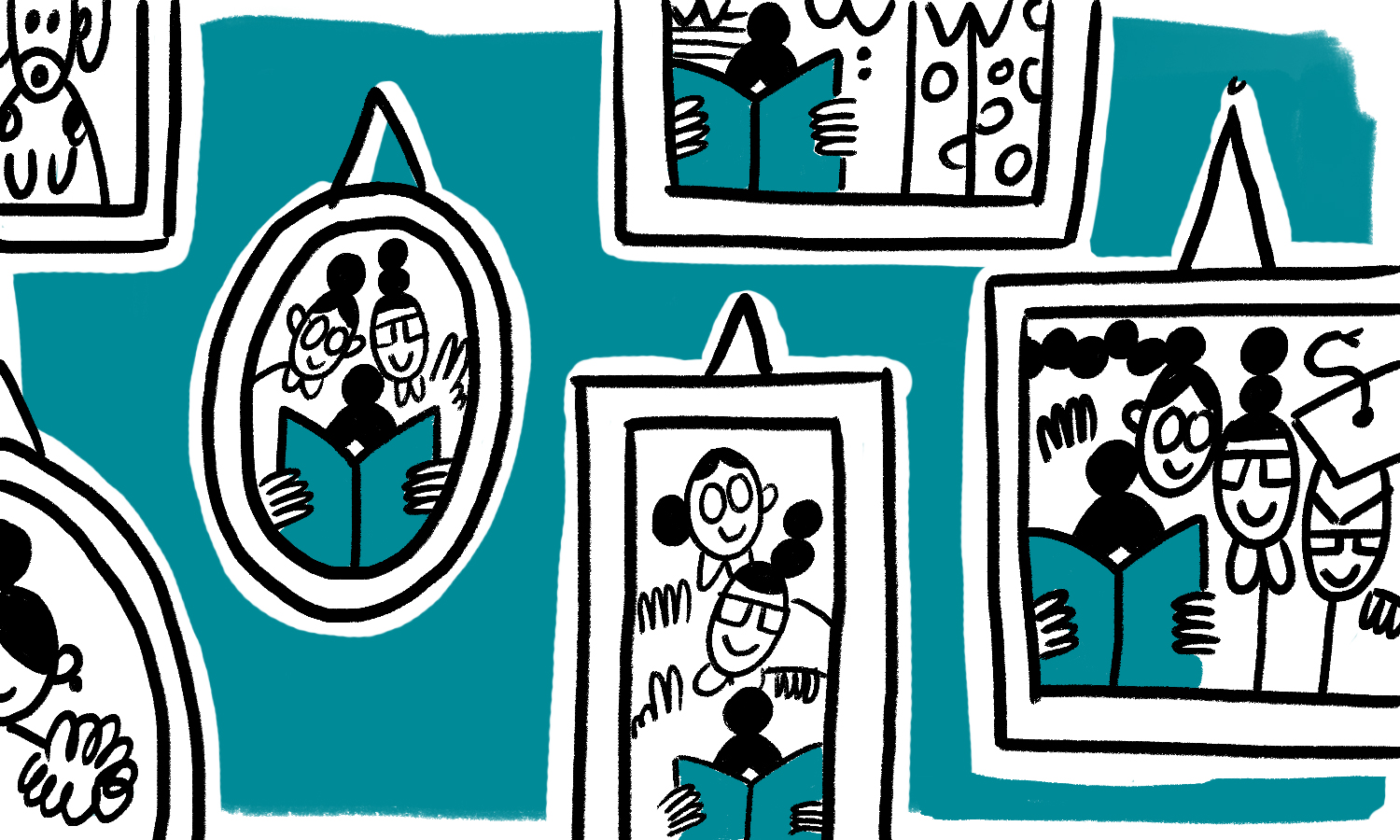
When you’re with your family — but want to read about other people’s
Census by Jesse Ball
I recently came across this captivating novel, and I couldn’t put it down. Filled with a beautiful but complex theme of familial love, it follows the story of a man and his son, who has Down syndrome, as they embark on a cross-country road trip. If you’re looking for a novel that will truly resonate with you this summer, this one’s for you.
— Mindy Scheier (TED Talk: How adaptive clothing empowers people with disabilities)
Kintu by Jennifer Nansubuga Makumbi
The author brilliantly stitches together pre-colonial and contemporary Uganda in this beautifully told story that covers three centuries and multiple generations of a single family. Kintu is surely one of the most ambitiously conceived and elegantly executed novels in this generation of African writing. It was also the winner of the inaugural Manuscript Prize from Kwani Trust, a pathbreaking publishing network that connects new African literary voices to long-starved audiences.
— Dayo Ogunyemi (TED Talk: Visions of Africa’s future, from Africa’s filmmakers)
Do Not Say We Have Nothing by Madeleine Thien
China is a country that no one can ignore. Today we know it as a nation that has emerged as a global economic superpower in a very short period of time and as a country that is redefining Communism and some of the stereotypes that go with it. This novel takes us back seven to eight decades and walks us from there — via the turbulent history of the country — all the way to the present. It does so through the lives of a single family and their friends and acquaintances. This book is a mesmerizing peek into all that has made the country into the China that exists today.
— Seema Bansal (TED Talk: How to fix a broken education system without any money)
When you want to take an existential vacation in someone else’s life
Sometimes Brilliant: The Impossible Adventure of a Spiritual Seeker and Visionary Physician Who Helped Conquer the Worst Disease in History by Larry Brilliant (TED Talk: My wish — help me stop pandemics)
This is the fascinating personal story about Larry Brilliant, who went from being a hippie and spiritual seeker to doctor, and his remarkable account of playing a key role in the eradication of smallpox worldwide. As a polio survivor who advocates for the end to that disease, I am inspired by Brilliant’s contribution to that monumental achievement. Some of the lessons learned in his effort to end smallpox can and have been applied to the global push to stop polio.
— Minda Dentler (TED Talk: What I learned when I conquered the world’s toughest triathlon)
Tranny: Confessions of Punk Rock’s Most Infamous Anarchist Sellout by Laura Jane Grace (with Dan Ozzi)
Grace’s story is filled with sincere self-reflection, and its touching, candid honesty is often unseen in the ego-hungry world of rock and roll. Tranny is not only a truly epic rock memoir chronicling her excesses but it also rips open her uncertainty and the bittersweet existence of a rock star. It’s an endearing and honest glance into the world of gender dysphoria, love, loss, success and failure — one that will kick you in the crotch and pull at your heart.
— Christian Picciolini (TED Talk: My descent into America’s neo-Nazi movement — and how I got out)
Lovesong: Becoming a Jew by Julius Lester
Lester so beautifully describes his experience growing up in a devout southern Christian family during the Civil Rights era before he decided to convert to Judaism. I instantly loved this book, and I was so inspired by the way he demystifies his conversion while honoring the complicated relationship among his racial, religious and cultural backgrounds as well as his journey into his chosen faith.
— Malika Whitley (TED Talk: How arts help homeless youth heal and build)
Eunice: The Kennedy Who Changed the World by Eileen McNamara
This book is a nuanced and candid biography of a distinguished member of the Kennedy family. From her impassioned advocacy for the mentally disabled to her role in creating the National Institute of Child Health and Human Development, Eunice attests to the formidable spirit and altruistic personality of a remarkable woman.
— Zachary Wood (TED Talk: Why it’s worth listening to the people you disagree with)
The Bright Hour: A Memoir of Living and Dying by Nina Riggs
This is a story about the last year in the life of a 39-year-old mother of two young children. Despite that description, it’s a joyful book and at times really funny. It also enabled me to see my own life through clearer eyes.
— Karen Lloyd (TED Talk: This deep-sea mystery is changing our understanding of life)
Prerequisites to Ecstasy: A No-Nonsense Guide to What It Really Takes to Create the Love and Sex We Say We Want by Om Rupani
Prerequisites is a collection of insights from a first-generation immigrant whose unlikely trajectory has led him to travel the world studying with masters of Tantra and to work with thousands of couples seeking to understand the nature of Eros and partnership. The lessons he’s gleaned on his journey are a seductive synthesis of modern sexuality. “To seduce for the long haul,” writes sexuality teacher Rupani, “seduce with the life you are living.”
— Sue Jaye Johnson (TED Talk: What we don’t teach kids about sex)
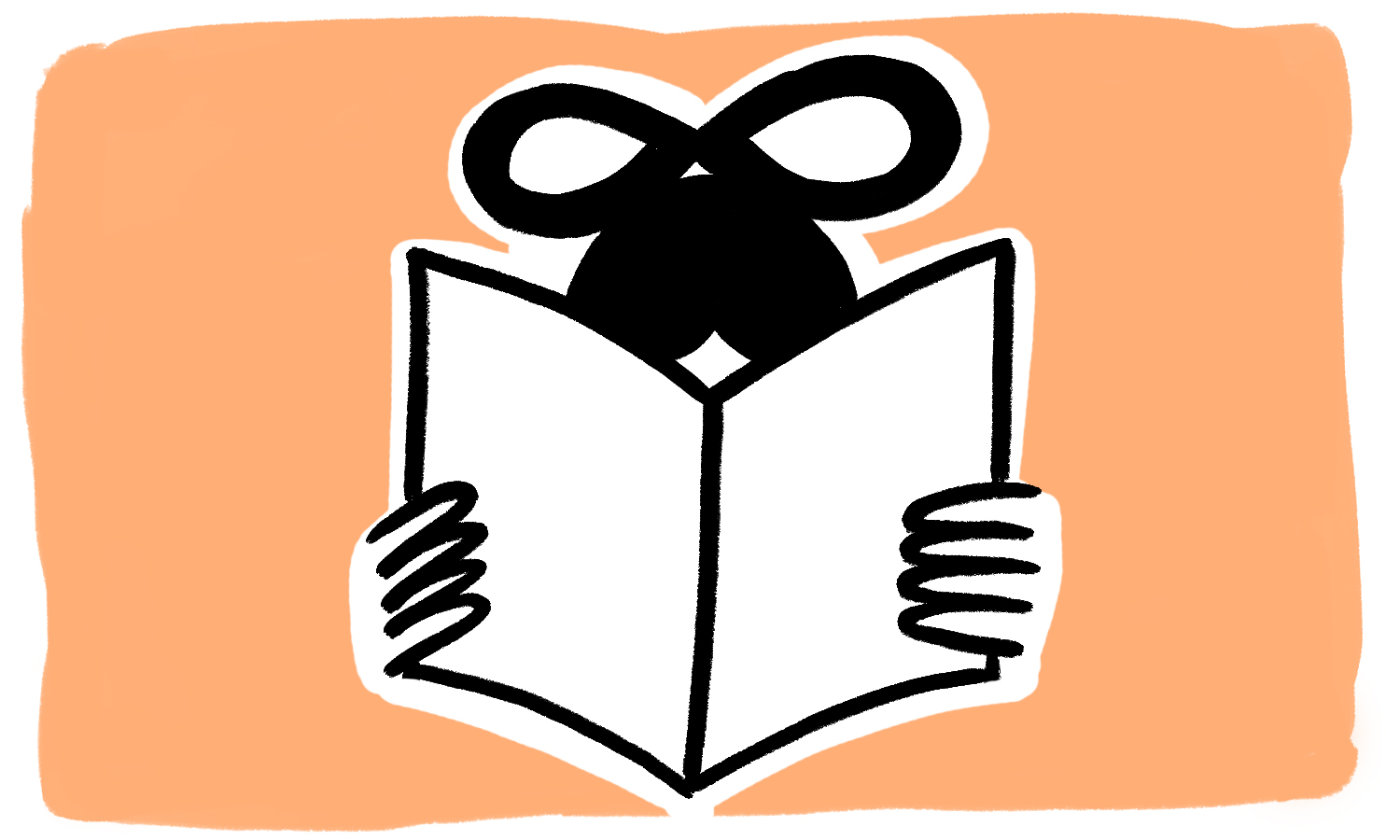
When you can’t get enough of math, science or art
Galileo, Courtier: The Practice of Science in the Culture of Absolutism by Mario Biagioli
The way we learn about scientific practitioners and progress often depicts them as pure epistemological actors, moving the boundaries of human understanding forward independent of political and sociological forces and concerns. This is not — and has never been — the way that science actually happens. Galileo explores this complexity in the context of the scientist’s life and work, putting the production of scientific knowledge of the past and the present in a new, more nuanced light.
— Dustin Schroeder (TED Talk: How we look kilometers below the Antarctic ice sheet)
Magical Mathematics: The Mathematical Ideas That Animate Great Magic Tricks by Persi Diaconis and Ron Graham
This book is about the many connections between magic and mathematics, and you’ll learn about both subjects by reading it. Have you ever wondered how magicians’ card tricks work? This books reveals some of the underlying mathematics — for example, one section is about shuffling cards — with numerous step-by-step instructions for each trick. There is also a chapter about juggling!
— Roger Antonsen (TED Talk: Math is the hidden secret to understanding the world)
Quantum Entanglement for Babies by Chris Ferrie
This book is a wonderfully simple, visual explanation of one of the most complex and counterintuitive scientific ideas of our time. It’s fun for little ones but equally delightful for non-babies.
— Vikram Sharma (TED Talk: How quantum physics can make encryption stronger)
3-D Geometric Origami: Modular Polyhedra by Rona Gurkewitz and Bennett Arnstein
You can teach yourself how to fold beautiful mathematical structures with this amazing do-it-yourself book. Modular origami is the art of creating simple units from single sheets of paper so that the units fit together into larger structures. This book contains step-by-step instructions and clear diagrams and serves as a nice introduction to this type of origami.
— Roger Antonsen (TED Talk: Math is the hidden secret to understanding the world)
A Mathematician’s Apology by G. H. Hardy
This is the best book I know about the sheer beauty of mathematics. Here’s one lovely quote from the book: “A mathematician, like a painter or a poet, is a maker of patterns. If his patterns are more permanent than theirs, it is because they are made with ideas.” Apart from the “his” — I say yes, indeed!
— David Brenner (TED Talk: A new weapon in the fight against superbugs)
The Grand Design by Stephen Hawking (TED Talk: Questioning the universe) and Leonard Mlodinow
This book beautifully weaves stories of the greatest philosophers and scientific thinkers into a compelling narrative about some of the universe’s biggest unanswered questions. It’s very readable and accessible.
— Vikram Sharma (TED Talk: How quantum physics can make encryption stronger)
Becoming Leonardo: An Exploded View of the Life of Leonardo da Vinci by Mike Lankford
I found this exploration of da Vinci to be thought-provoking, especially compared to the thought-stifling entry on this same topic by Walter Isaacson, which has quite undeservedly received more press. Lankford presents a great many insights and delivers just the kind of biography I want to read: informed, colorful and very far from dry. With intense immediacy and grace, Becoming Leonardo starts on a high note and keeps getting better until the very end.
— Daniel Levitin (TED Talk: How to stay calm when you know you’ll be stressed)
The Stones of Venice by John Ruskin
This book was perhaps my first profound introduction to Venice. I love the way Ruskin illuminated Venetian art and architecture in its variegated forms.
— Iké Udé (TED Talk: The radical beauty of Africa, in portraits)
Lise Meitner: A Life in Physics by Ruth Lewin Sime
Lise Meitner was the co-discoverer of nuclear fission but — surprise surprise — while co-discovers Otto Hahn and Fritz Strassmann received the Nobel Prize, she did not. But what is so gripping is the story of how a Jewish woman scientist working in Berlin until the late 1930s managed to contribute so much to our knowledge of how the world works. It’s another reminder of how much we lose, even today, because women in science too often still face an uphill struggle.
— David Brenner (TED Talk: A new weapon in the fight against superbugs)
When you want to check out from reality and dive into sci-fi and fantasy
Player of Games by Iain M. Banks
A classic from one of the true masters of the science fiction genre. This book, which is part of a 10-book series, really messes with your head, and you need a book to do that to you every so often.— Ian Bremmer (TED Talk: How the US should use its superpower status)
American Gods by Neil Gaiman
This is a dark, highly inventive, very fun, very funny and exhilarating story. I loved how it bridged some of my favorite genres — fantasy, historical fiction and mystery. It describes how the world ends up on the verge of an apocalyptic war between gods from the Old World and gods from the New World, and it’s up to a single man to save the planet. The writing is so good that it stayed vivid in my mind long after I finished it.
— Simone Bianco (TED Talk with Tom Zimmerman: The wonderful world of life in a drop of water)
The Fire’s Stone by Tanya Huff
The Stone, which is pacifying the volcano threatening a city in Ischia, has been stolen. By chance, a thief named Aaron, a young prince called Darvish, and his unwilling bride-to-be Chandra are the only ones with a real chance to retrieve this object. It was a pleasure to accompany these three young people on their adventure and watch them grow into mature and likable characters.
— Hannah Bürckstümmer (TED Talk: A printable, flexible, organic solar cell)
The Left Hand of Darkness by Ursula K. Le Guin
I’m in the middle of reading this book, and while it’s not a new work, it feels more relevant than ever. Le Guin paints a world where gender doesn’t exist—there’s no binaries and no continuum. At a time when issues of inclusivity are at the forefront, this novel approaches them in ways that are both engaging and inquisitive.
— Raphael Arar (TED Talk: How we can teach computers to make sense of our emotions)
Frankenstein by Mary Shelley
This year marks the 200th anniversary of Mary Shelley’s landmark Gothic novel. I was recently drawn again to this masterpiece, because I study how microscopic organisms live and behave and how to alter their genes and environment so they can be used as cellular factories and environmental sentinels. Shelley explores the moral and societal dilemmas of scientific exploration and the ethics and responsibilities that stem from it. It’s a must read.
— Simone Bianco (TED Talk with Tom Zimmerman: The wonderful world of life in a drop of water)
Super Sad True Love Story by Gary Shteyngart
This lyrically written book floors you with its prescience. Plus, it’s just a great love story — and not in in the dreamy-eyed sense, either.
— Ian Bremmer (TED Talk: How the US should use its superpower status)
A Door into Ocean by Joan Slonczewski
This book, along with the four other books in Elysium Cycle, hit all of my favorite notes for summer reading: world-building sci-fi, alternative political structures, artificial intelligence and merwomen. The author is a biology professor at Earlham and a practicing Quaker, so get ready for eco-feminist sci-fi with an anarchist bent. If you can push through the first 30 pages of dry setup, you’ll make it to an incredible story that explores how fantastical other worlds can be. The first book explores a planet where women have created technologies to heal all diseases, and the second one (Daughter of Elysium) explores the same planet hosting a new culture that has developed ways to live forever assisted by some pretty sassy AI.
— Molly Winter (TED Talk: The taboo secret to better health)
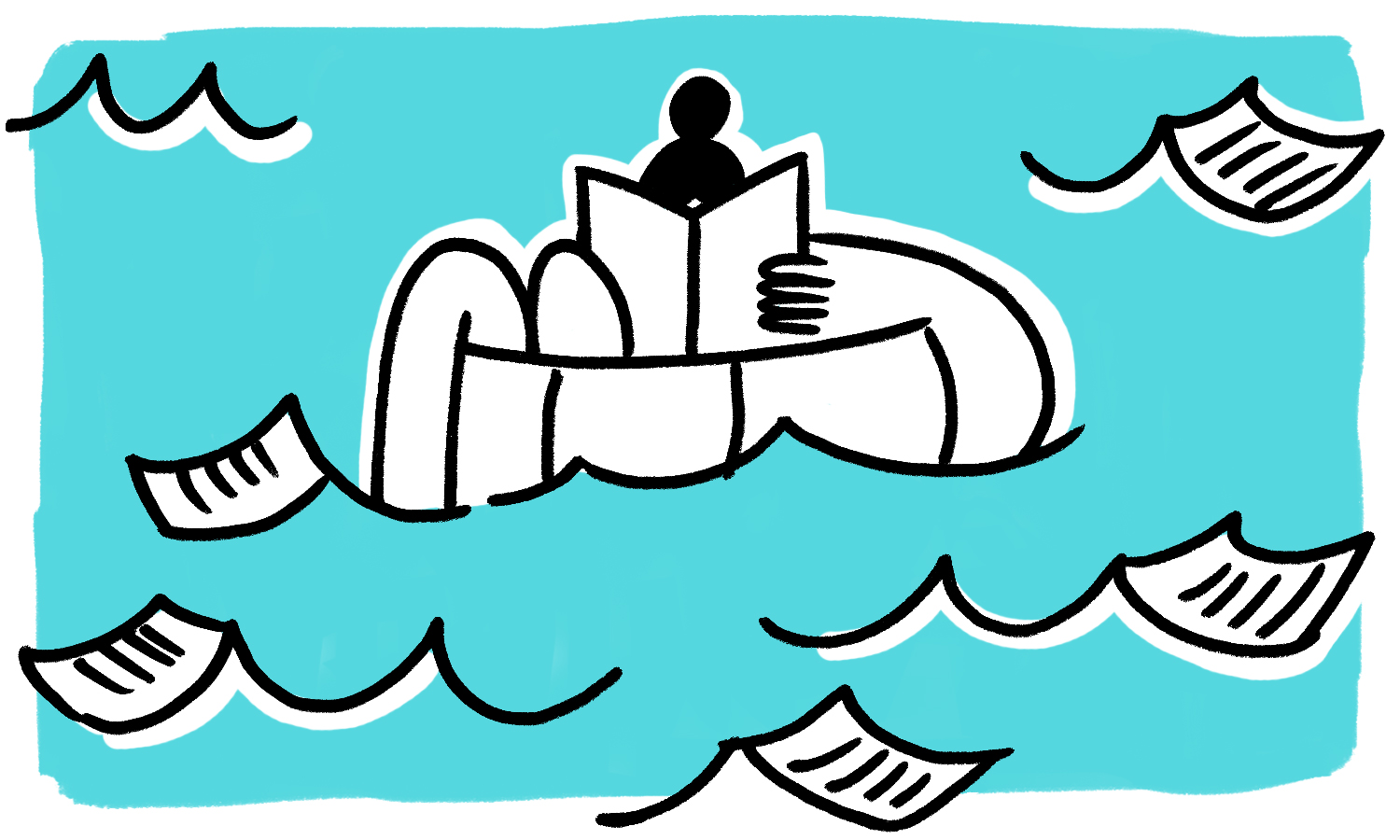
When you want an essay collection you can dip in and out of
The Painter of Modern Life by Charles Baudelaire
I loved the essays in this book, particularly such vignettes as “In Praise of Cosmetics”, “The Dandy,” “Women and Prostitutes,” “Modernity” and “Mnemonic Art.” Some of his arguments would not be politically correct in our present age, but I love them because they are so radically and wittily argued.
— Iké Udé (TED Talk: The radical beauty of Africa, in portraits)
Guidebook to Relative Strangers: Journeys into Race, Motherhood, and History by Camille T. Dungy
Dungy’s micro and macro attention is captivating, as she writes hilariously in one paragraph about breast pump flanges and poignantly in another about the pathways of Africans forced into slavery. Each essay, while distinctly different in topic, either focuses on or eventually comes around to issues of race and motherhood and history, making the book thoughtfully cohesive. And because many of the essays take you places — such as Alaska, Maine, Ghana — the book reads as a travel collection as well, so I love it for summer reading.
— Heather Lanier (TED Talk: “Good” and “bad” are incomplete stories we tell ourselves)
The Imam and the Indian by Amitav Ghosh
These 15 short essays are on topics ranging from a fancy fundraising dinner in New York City to life in rural Egypt and everything in between. Ghosh is many things, but above all he is a social anthropologist par excellence. These are simple stories, beautifully narrated and each a window into a time and place far away. What I find most amazing about this book is that every essay leaves you with a thought or a question or a perspective about the world, humanity or us as individuals that is unbelievably simple and yet very powerful.
— Seema Bansal (TED Talk: How to fix a broken education system without any money)
Daemon Voices: Essays on Storytelling by Philip Pullman
These 30 essays, written over two decades by the author of many books including the Dark Materials trilogy, cover the craft of storytelling. I found that Pullman writing about how he writes his stories was (almost) as good as his original stories themselves.
— Daniel Susskind (TED Talk: 3 myths about the future of work and why they’re not true)
http://www.theconversation.com
[Editor’s note: Although this isn’t a book recommendation, we think this website definitely belongs on a reading list.] The Conversation pairs academics’ expertise with the story-focused, conversational voice of journalists. At this site, you’ll find relevant articles that discuss recent science research, political issues, and much more. If you get bored with your beach read this summer and want to find something relevant to read on your phone, go here.
— Erica Stone (TED Talk: Academic research is publicly funded — why isn’t it publicly available?)
When you yearn to be inspired by people who persevered through challenges
The Boys in the Boat: Nine Americans and Their Epic Quest for Gold at the 1936 Berlin Olympics by Daniel James Brown
I just finished this book. I’d never thought much about rowing, so I learned a great deal about this sport during a time of great change in the US. It’s an excellent read that will give you much to think about.
— Joan Blades (TED Talk with John Gable: Free yourself from your filter bubbles)
Sharp: The Women Who Made an Art of Having an Opinion by Michelle Dean
This book is an eclectic collection of biographies of some of my favorite writers, held together by the common set of challenges that they faced as women.
— Daniel Susskind (TED Talk: 3 myths about the future of work and why they’re not true)
Grit by Angela Duckworth (TED Talk: Grit — the power of passion and persistence)
In this compelling and interesting read, Duckworth explores the concept of grit. Through numerous real-life examples of high achievers, she examines the idea that they possess a combination of passion and perseverance — not just talent. This book really resonated with me, a person who sees herself as possessing grit. It made me recognize that much of my success in athletics, work and life has been due to my effort and unrelenting determination, despite my not being the fastest or most talented. I hope that I can teach my own daughter to have grit.
— Minda Dentler (TED Talk: What I learned when I conquered the world’s toughest triathlon)
Barracoon: The Story of the Last “Black Cargo” by Zora Neale Hurston
The story in this recently discovered manuscript was new to me. In this book, author Hurston offered me a new perspective of freedom, emancipation and the belief in humanity.
— Deborah Willis (TED Talk with Hank Willis Thomas: A mother and son united by love and art)
Great Soul: Mahatma Gandhi and His Struggle with India by Joseph Lelyveld
I thought I was a Gandhi nerd, but I learned so much from this moving biography: how his steadiest profession was as a newspaperman, constantly working out ideas through public writing; how he was a relentless fundraiser, at times prying jewelry from the fingers of women supporters; and above all, how his “habit of fearlessness” inspired millions. These days, I find myself hungering for not just hope in general but for gritty insights into the persistence, imperfection, self-doubt and creativity that are part of forging a better world. Gandhi had it all, and no one tells the story like Lelyveld.
— Vivek Maru (TED Talk: How to put the power of law in people’s hands)
No Pity: People with Disabilities Forging a New Civil Rights Movement by Joe Shapiro
I really appreciated No Pity, which effectively covers the history of the disability rights movement from the 1970s until the 1990s. This book is important because many people today are not even aware that there is a disability rights movement.
— Judith Heumann (TED Talk: Our fight for disability rights — and why we’re not done yet)
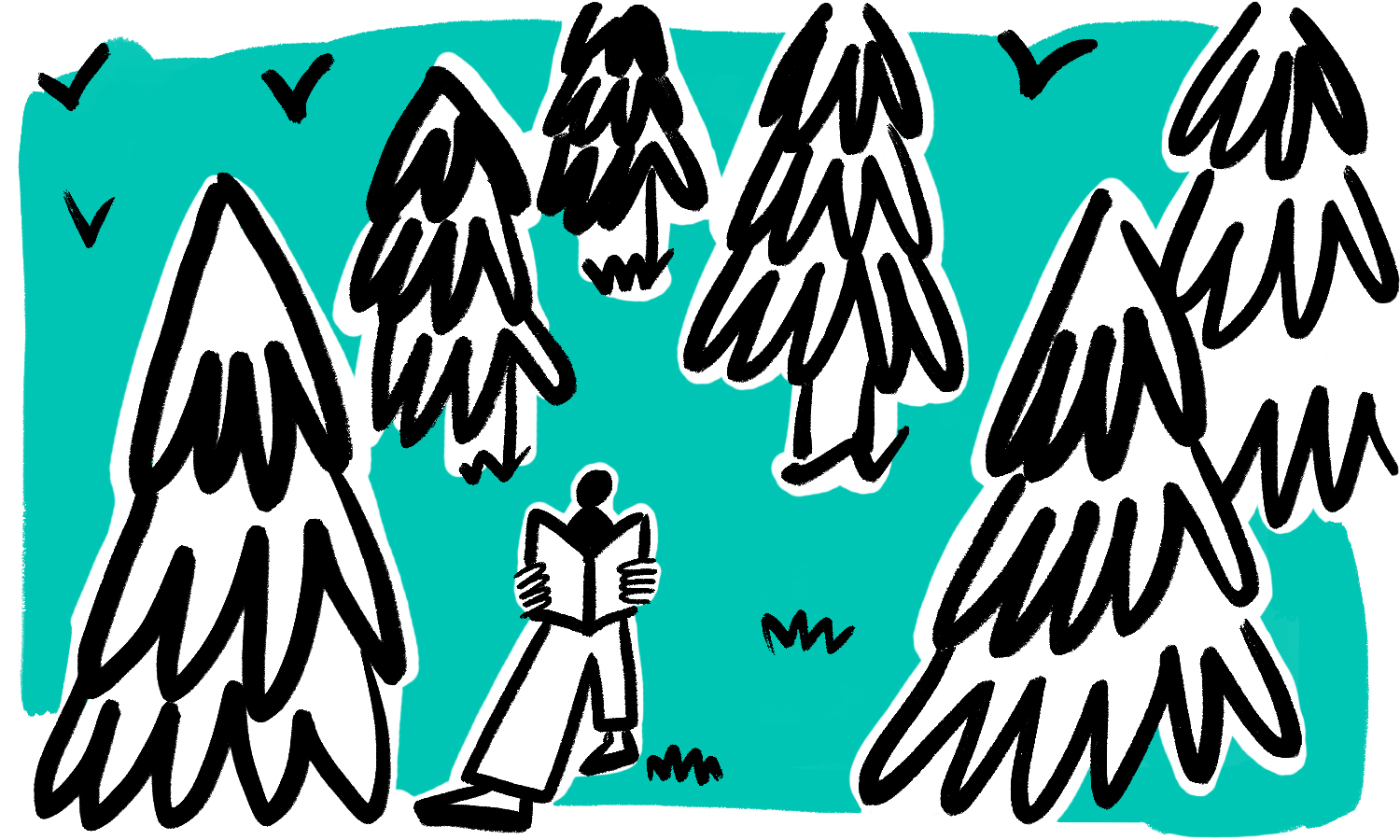
When you want to learn about nature
The Global Forest: 40 Ways Trees Can Save Us by Diana Beresford-Kroeger
This beautifully written book is about where philosophy and science intertwine. It also explores how aboriginal cultures have survived for thousands of years because of their way of life, which is unlike our modern civilization that has pushed us to the edge of survival.
— Shubhendu Sharma (TED Talk: An engineer’s vision for tiny forests, everywhere)
Aaaaw to Zzzzzd: The Words of Birds: North America, Britain and Northern Europe by John Bevis
This book is both an enormous joke and a real art piece. This dictionary of bird sounds and mnemonics will make you sensitive to the funny paradox of transcribing the amazing variety of bird sounds into human words and to the limitation of verbal elements in animal and human voices.
— Rebecca Kleinberger (TED Talk: Why you don’t like the sound of your own voice)
Forest Bathing: How Trees Can Help You Find Health and Happiness by Qing Li
I am reading this book right now. Containing beautiful pictures of different Japanese forests, the book talks about the healing power of trees. Backed by scientific research, Li discusses the remedy they can provide for many of our everyday problems. The author is a forest medicine doctor, and I consider this book a must-read for every urban dweller.
— Shubhendu Sharma (TED Talk: An engineer’s vision for tiny forests, everywhere)
The Hidden Life of Trees: What They Feel, How They Communicate, Discoveries from a Secret World by Peter Wohlleben
Wohlleben describes many astonishing features about our calm neighbors, the trees. They can talk to each other over huge distances, help each other when they get sick, and display individual character. You’ll learn about the personalities of different trees and why isolated trees in cities feel like orphans.
— Hannah Bürckstümmer (TED Talk: A printable, flexible, organic solar cell)
When you want to prep for going back to work
The Content Trap: A Strategist’s Guide to Digital Change by Bharat Anand
In the rapidly changing environment of the digital age, entrepreneurs, business professionals and nonprofit leaders all need to understand how people interact with content. Focusing on good content without intentionally considering the connections that content generates is “the content trap” that hinders progress, growth and sustainability.
— Alvin Irby (TED Talk: How to inspire every child to be a lifelong reader)
A PhD Is Not Enough: A Guide to Survival in Science by Peter Feibelman
There is so much more to pursuing a career in academia than being a good student, doing good research and getting a PhD. However, as a first-generation college student, I didn’t know what mattered most or even what was involved in pursuing my dream of becoming a university professor. Reading this book was an important first step towards learning what this kind of work and life is really like.
— Dustin Schroeder (TED Talk: How we look kilometers below the Antarctic ice sheet)
Tribal Leadership: Leveraging Natural Groups to Build a Thriving Organization by Dave Logan, John King and Halee Fischer-Wright
One of the most challenging, rewarding and surprising things about being a professor is how much of your thought, time and energy is spent building and leading a team. After all, most faculty are PhDs, not MBAs. Tribal Leadership is one on a short list of books that I draw on in order to go beyond the traditional teacher/scholar model and try to build a team environment where super-smart students work together to solve super-hard problems.
— Dustin Schroeder (TED Talk: How we look kilometers below the Antarctic ice sheet)
Powerful: Building a Culture of Freedom and Responsibility by Patty McCord (TED Talk: HR lessons from the world of Silicon Valley start-ups)
As the longtime head of talent at Netflix and co-author of the legendary Netflix Culture Deck, McCord has penned an incisive treatise against traditional HR practices. In short, digestible chapters, she explains how paying top dollar, firing anyone who isn’t an A+ performer and training employees on how businesses operate all helped Netflix become one of the most successful media and technology companies in the world.— Jason Shen (TED Talk: Looking for a job? Highlight your ability, not your experience)
Chaos Monkeys: Obscene Fortune and Random Failure in Silicon Valley by Antonio Garcia Martinez
The book is full of really cool anecdotes from Silicon Valley, and they range from the very informative to the amusing and just plain absurd. The author worked at Facebook, joined YCombinator, and sold his company to Twitter, and he offers a fun peek inside Silicon Valley, ad tech, and the ups and downs of startups.
— Tasos Frantzolas (TED Talk: Everything you hear on film is a lie)
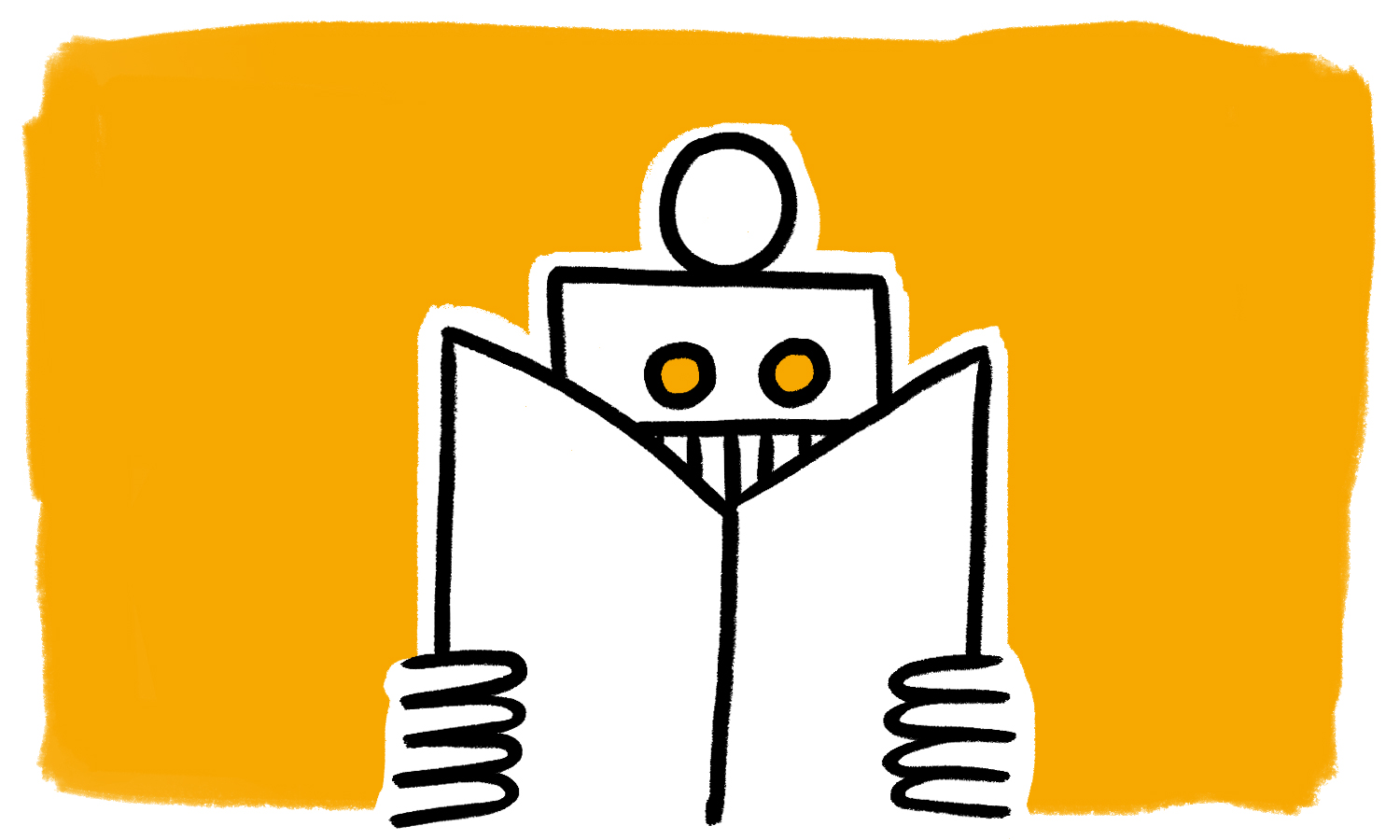
When you’re trying to understand AI’s impact on humanity
Superintelligence: Paths, Dangers, Strategies by Nick Bostrom (TED Talk: What happens when our computers get smarter than we are?)
This is the book that inspired the viral clicker game “Universal Paperclips” (which is very much worth a visit). This epic tome discusses the most important and difficult problem that humankind has ever faced: How would we control an intelligence greater than our own? And, most important, can we solve this problem in time?
— Natasha Hurley-Walker (TED Talk: How radio telescopes show us unseen galaxies)
Automating Inequality: How High-Tech Tools Profile, Police and Punish the Poor by Virginia Eubanks
This book showcases the dark side of our beloved technologies and digital decision-making systems such as credit scores and insurance co-pays. In addition to teaching readers how high-tech tools impact poor and working-class communities, Eubanks is donating 50 percent of her book royalties to the Juvenile Court Project of Pittsburgh, Indiana Legal Services of Indianapolis and the Los Angeles Community Action Network (LA CAN).
— Erica Stone (TED Talk: Academic research is publicly funded — why isn’t it publicly available?)
The Future by Nick Montfort
This is a short read but a great look at some key future thinkers throughout history. Through delightfully written case studies, Montfort makes the argument that the future can be made and not predicted. It’s a must-read for anyone interested in future studies and the role that sci-fi, speculative design and big ideas play in shaping our future relationship with technology.
— Raphael Arar (TED Talk: How we can teach computers to make sense of our emotions)
The War on Normal People: The Truth About America’s Disappearing Jobs and Why Universal Basic Income Is Our Future by Andrew Yang
There are a number of books covering the impact of AI and automation on the U.S. workforce, but none have the urgency of this one. Yang, who is campaigning for the Presidency in 2020 on a platform of Universal Basic Income (UBI), makes a clear and compelling case that the massive shift in America’s labor markets require a dramatic shift in economic policy. This is a highly readable and thought-provoking book, regardless of your stance on UBI.
— Jason Shen (TED Talk: Looking for a job? Highlight your ability, not your experience)
When you’d like to cultivate greater empathy for others
A Kind of Mirraculus Paradise: A True Story About Schizophrenia by Sandra Allen
In college, Allen’s uncle sent her his autobiography in the mail — the story of a man suffering from schizophrenia. The autobiography was written in all capital letters on a typewriter, and Allen’s vicarious memoir that places her uncle’s story in context is written in two fonts. This book beautifully recounts the life of a beautiful and troubled man, and it’s a one-of-a-kind must-read on mental illness.
— Drew Philp (TED Talk: My $500 house in Detroit and the neighbors who helped me rebuilt it)
Wonder by R. J. Palacio
I really liked Wonder, which is a book for all ages, because it talks about the power of inclusion, resilience and family. It also deals with a topic that is not normally discussed: facial deformity.
— Judith Heumann (TED Talk: Our fight for disability rights — and why we’re not done yet)
Look Me in the Eye: My Life with Asperger’s by John Elder Robison
In my work — I help people disengage from violence-based extremism — I see far too many instances of people from vulnerable communities who are preyed on by manipulative recruiters and propagandists. Trolling traditional “safe” zones, like online autism and depression forums, has become the norm as they target individuals who might be desperately looking for acceptance due to a history of bullying or marginalization. When I sounded the alarm on this disturbing practice, Robison and his colleagues answered the call and offered to work with me to understand the phenomenon and counter it. He and his memoir opened my eyes to an understanding of what so many people are dealing with on a daily basis and their wonderful identities that can and should be embraced — rather than stigmatized.
— Christian Picciolini (TED Talk: My descent into America’s neo-Nazi movement — and how I got out)
A Return to Love: Reflections on the Principles of A Course in Miracles by Marianne Williamson
This mega-bestselling spiritual guide — in which the author shares her insights on the application of love in the search for inner peace — has been newly updated. Williamson reveals how we can all become miracle workers by accepting God and by expressing love in our daily lives. Whether our psychic pain is in the area of relationships, career or health, she shows us how love can be a potent force. By practicing love, we can make our own lives more fulfilling while creating a more peaceful world for our children. Williamson has written many books, but this one is my favorite.
— Azim Khamisa (TED Talk with Ples Felix: What comes after tragedy? Forgiveness)
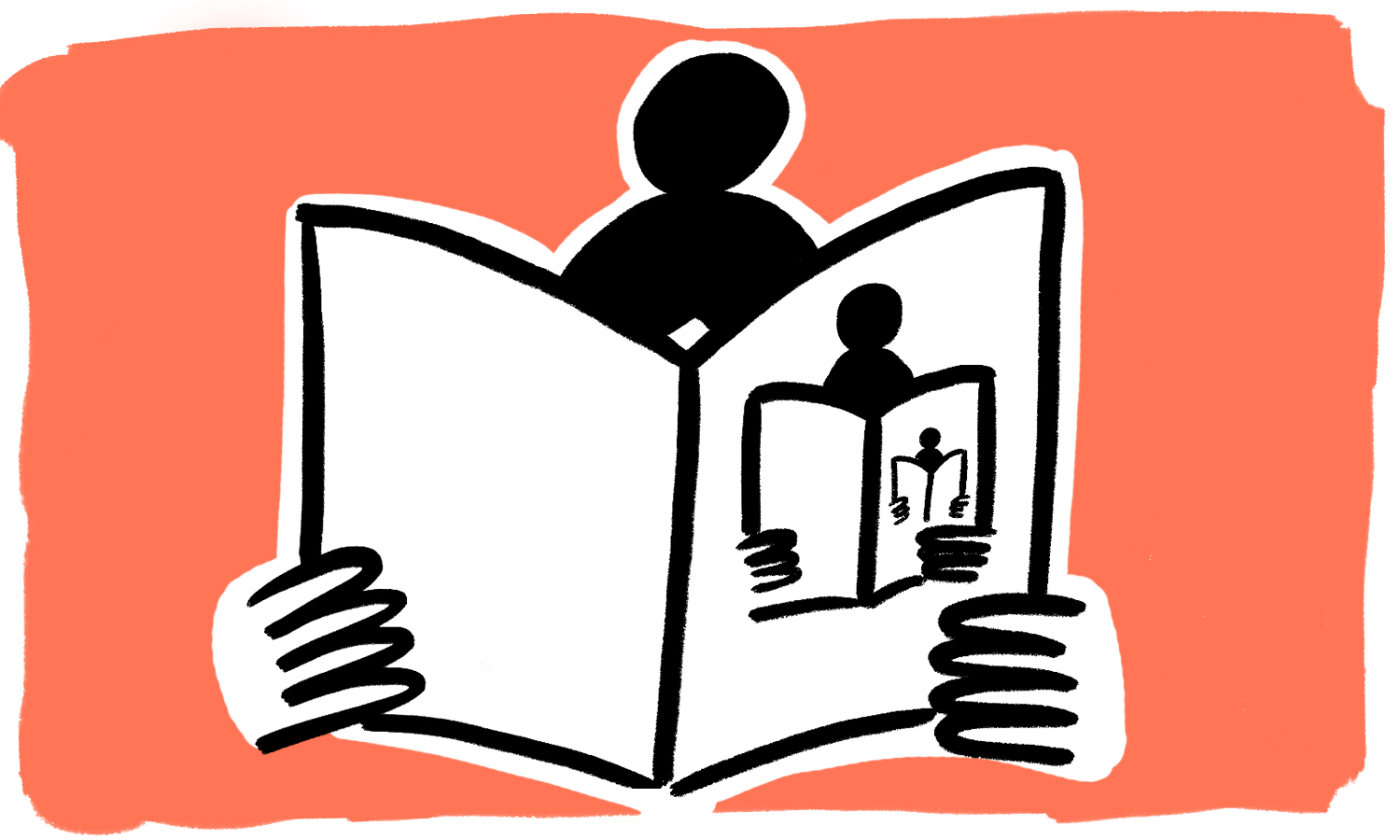
When you want to read books by and about women
We Should All Be Feminists by Chimamanda Ngozi Adichie (TED Talk: The danger of a single story)
At one point, I started calling myself a humanist instead of a feminist. I convinced myself by saying I cared about all humans, so why bother with those negative associations with the word “feminist”? I read this short book while I was on a plane, and who would have thought that after all these years, a book would make me call myself a feminist again with pride, genuineness and fearlessness? Adichie says she started calling herself “a happy African feminist who does not hate men and who likes to wear lip gloss and high heels for herself and not for men” to defend against the stereotypes associated with the f-word. Although I may not be African, do not wear lipstick often, and quickly get tired from high heels, I felt she was speaking about me. I felt she was in my (flat) shoes! To women and men, mothers and fathers, brothers and sisters, daughters and sons, I encourage you all to embrace being a feminist.
— Lana Mazareh (TED Talk: 3 thoughtful ways to conserve water)
Sorry, Not Sorry by Haji Mohamed Dawjee
This memoir is an intimate and funny unpacking of a brown woman’s experience of life in modern-day South Africa. Everything from sneakers to sexuality is covered in the most hilarious, heartwarming, thought-provoking and sometimes heartbreaking way. It’s bound to make people uncomfortable in all the best ways.
— Tiffany Mugo (TED Talk with Siphumeze Khundayi: How to have a healthier, positive relationship to sex)
Women Who Run with the Wolves: Myths and Stories of the Wild Woman Archetype by Clarissa Pinkola Estes
“Stories are medicine,” writes Estes in her seminal work. As a poet and a playwright, I believe this to be true. The Wild Woman archetype is not the aspirational end product of constant activity and striving; she is our birthright — untamed, instinctive, innate. Through folktales and cultural narratives, the author illuminates the historic and present-day significance of the Wild Woman and reminds us that she is essential to the psychological and spiritual well-being of individual women and the world as a whole. To be clear, this is not a beach read. This is a sit-at-your-desk-highlighter-in-hand-read-a-few-pages-and-reflect kind of book. It’s certain to inspire.
— Felice Belle (TED Talk with Jennifer Murphy: How we became sisters)
If I Stay Right Here: A Novel by Chwayita Ngamlana
This book is a dark and extremely personal account of one woman’s experience of intimate partner violence with her girlfriend. The author uses an experimental literary style that makes reading it a bit of a trip sometimes. Intimate partner violence is not a topic that’s often spoken about, but this semi-biographical book breaks the silence.
— Tiffany Mugo (TED Talk with Siphumeze Khundayi: How to have a healthier, positive relationship to sex)
The Politics of Breastfeeding: When Breasts Are Bad for Business by Gabrielle Palmer
An intense and, at times, heartbreaking examination of the seismic shift in attitudes towards breastfeeding over the past two hundred years. The book shows how these attitudes have impacted women’s autonomy, livelihoods and roles within families and wider society, as well as the nutrition and health of the billions of babies born in that time — that is, all of us.
— Natasha Hurley-Walker (TED Talk: How radio telescopes show us unseen galaxies)
Keep Marching: How Every Woman Can Take Action and Change Our World by Kristin Rowe-Finkbeiner
This is my favorite book of the year, but I’ll admit to being completely biased. I co-wrote a book with the author, and I think she’s phenomenal. This book recounts much of what we’ve done and learned through our work at MomsRising.org during the last decade.
— Joan Blades (TED Talk with John Gable: Free yourself from your filter bubbles)
Women’s Anatomy of Arousal by Sheri Winston
If there ever were to be a national sex-ed class for grownups — we can dream, can’t we? — this book would be the first on the required reading list. Winston is a midwife, RN and renowned sex educator whose research is impeccable. Here, she details the erasure of women’s anatomy and pleasure in our medical texts and cultural narratives. “Not understanding this basic information,” she writes, “does us all manner of harm. For starters, it limits our sexual pleasure, leading to dysfunction and dissatisfaction.” Her lyrical descriptions of how to integrate breathing, visualization, communication, erotic mapping and body intelligence make her homework assignments ones that you will want to turn in early.
— Sue Jaye Johnson (TED Talk: What we don’t teach kids about sex)
When you want to grasp society’s major challenges
The Awkward Thoughts of W. Kamau Bell by W. Kamau Bell
Bell is a self-described sociopolitical comedian. In a series of essays that are part memoir and part sharp and humorous take on the world, he tackles everything from race relations to comedians and superheroes. I found myself both snorting with laughter and reflecting soberly on the challenges of our time. I dare say both are essential for processing the complicated and sometimes absurd events of now.
— Liz Ogbu (TED Talk: What if gentrification was about healing communities instead of replacing them?)
Utopia for Realists: How We Can Build the Ideal World by Rutger Bregman (TED Talk: Poverty isn’t a lack of character; it’s a lack of cash)
This book completely changed how I see our past and our future. It not only explores whether the world is getting better or worse, but it also shares some simple approaches to our future challenges. (Read an excerpt from the book here.)
— Sebastian Bortnik (TED Talk: The conversation we’re not having about digital child abuse)
Eloquent Rage: A Black Feminist Discovers Her Superpower by Brittany Cooper (TED Talk: The racial politics of time)
There is so much beauty and strength in being unapologetically angry about navigating the world in a Black body while in a society that systematically lessens its value. I’m grateful for Cooper for being angry out loud and for empowering all of us — in whatever causes we’re fighting for — to validate the role that rage has in making change. In my work, I encourage teens not to censor themselves, and Cooper is a brilliant example of how to stand in your truth while honoring those who bear witness.
— Malika Whitley (TED Talk: How arts help homeless youth heal and build)
Locking Up Our Own: Crime and Punishment in Black America by James Forman Jr.
Locking Up is a careful and convincing analysis of the historical role that black political elites have played in the rise of mass incarceration. This book challenges us to think more rigorously about the mass incarceration of America’s black men and focuses our attention on the complexities of race, class and crime in the inner cities.
— Zachary Wood (TED Talk: Why it’s worth listening to the people you disagree with)
The Autumn of the Middle Ages by Johan Huizinga
By locating a premodern Europe in relatively primitive conditions, this history classic shines light on the present-day Africa’s relatively primitive conditions and offers a road map for how to achieve an African Renaissance in more or less the same way that Europe did. This serves as a profoundly practical guidebook for me in relation to Africa.
— Iké Udé (TED Talk: The radical beauty of Africa, in portraits)
The Sixth Extinction: An Unnatural History by Elizabeth Kolbert
Everyone knows we have a problem with the environment. But did you know there have been just five mass extinction events in the last half billion years — the most recent of which was 66 million years ago, when an asteroid hit the earth — and that we humans are causing the sixth? Every day, I think about what I learned from this book. Kolbert doesn’t offer solutions — she leaves that to us.
— Vivek Maru (TED Talk: How to put the power of law in people’s hands)
How to Kill a City: Gentrification, Inequality and the Fight for the Neighborhood by Peter Moskowitz
How to Kill a City uses four cities (New Orleans, Detroit, San Francisco and New York) as case studies to outline the different stages of gentrification and how community members might intervene before their neighborhoods and cultures are overtaken. Part storytelling and part qualitative analysis, this book is not to be missed.
— Erica Stone (TED Talk: Academic research is publicly funded — why isn’t it publicly available?)
Just Mercy: A Story of Justice and Redemption by Bryan Stevenson (TED Talk: We need to talk about an injustice)
Besides being beautifully and poignantly written, this book opened my eyes to the depth of racial inequity in our criminal justice system, particularly for those facing the death penalty. Intellectually, I’ve known that such inequities exist, but this book — with its powerful stories of wrongfully accused inmates on death row and the valiant efforts to free them — showed me in a way that I never previously understood just how deep this injustice runs.
— Wendy Troxel (TED Talk: Why school should start later for teens)
The Fire This Time: A New Generation Speaks About Race, edited by Jesmyn Ward
In this compelling collection, award-winning author Ward looks to James Baldwin’s seminal book The Fire Next Time for comfort and counsel. In response, she has compiled an anthology of work from thinkers of her generation that speaks about race in ways that are compelling, thought-provoking and extremely salient for our times. From essays to poems, these pieces will leave you thinking about them long after you’ve finished reading them.
— Liz Ogbu (TED Talk: What if gentrification was about healing communities instead of replacing them?)












